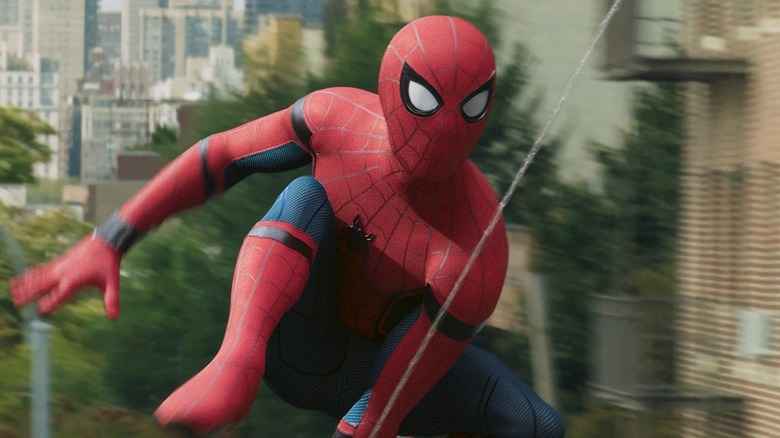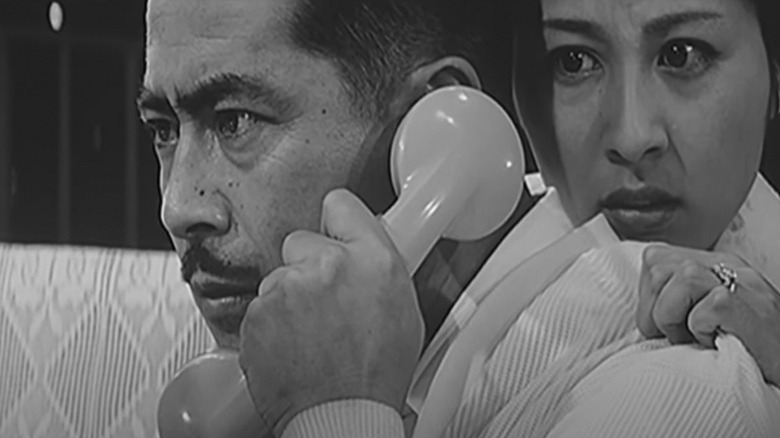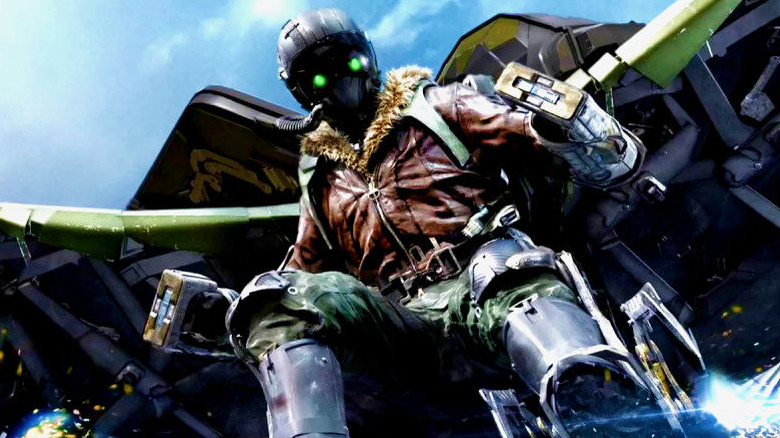The Akira Kurosawa Film That Influenced Spider-Man: Homecoming
"Spider-Man: Homecoming" is one of the biggest surprises I've ever encountered in a movie theater. Not only did it prove that the third time was the charm when it came to recasting the web-slinger's silver screen adventures, but it also folded Spidey effortlessly into the Marvel Cinematic Universe's narrative and provided a villain in Michael Keaton's Vulture that had just as much depth as Tom Holland's Peter Parker.
A large part of the film's success is due to the influences that director Jon Watts and producers Kevin Feige and Amy Pascal drew from. Watts has been open about how the work of John Hughes, including "Ferris Bueller's Day Off" and "The Breakfast Club," inspired his take on Spidey; the former even receives a shoutout when Spidey chases the Vulture's crew through a suburban neighborhood. However, Feige and Pascal revealed that the work of another filmmaker ended up shaping the Vulture's motives.
The haves and the have nots
During an exclusive /Film interview with our very own Peter Sciretta, Feige revealed that Pascal convinced him to watch Akira Kurosawa's "High and Low" for the first time, and explained how it shaped the parallel journeys that Peter Parker and Adrian Toomes take in "Homecoming."
"And other than just exposing me to a great movie I'd never seen, which I appreciated, it was a bit of a touch point for somebody who felt — and again, of course, it's not an exact parallel. But it was a great touch point of inspiration from Amy about somebody who looks up at a wealthy person almost in a tower every day in their life and feels the need to respond to that in a villainous way."
Historically, filmmakers have tended to publicly cite Kurosawa's most popular films including "Seven Samurai" or "Yojimbo," as influences on their work. However, "High and Low" is just as compelling as those feudal era tales. Centered on a botched kidnapping and a corporate executive who is torn between paying off the ransom and going through with a major buyout of a small company, "High and Low" dealt with themes of class inequality, which are also touched upon in "Homecoming."
A Wing And A Prayer
In "Homecoming," Adrian Toomes' salvage company is overtaken by the Department of Damage Control, which happens to have a partnership with Stark Industries. Feeling disillusioned, this leads Toomes to don the garb of the Vulture and rob Damage Control whenever they pick up the wreckage from superhero battles. In the final act, when Spidey confronts Toomes over his crimes, Toomes fires back:
"How do you think your buddy Stark paid for that tower, or any of his little toys? Those people, Pete, those people up there, the rich and the powerful, they do whatever they want. Guys like us, like you and me ... they don't care about us."
This scene bears a strong resemblance to the end of "High and Low," in which Toshiro Mifune's Kingo Gondo comes face to face with Tsutomu Yamazaki's Ginjirô Takeuchi. Takeuchi reveals that seeing Gondo's house perched atop a hill every day sparked feelings of jealousy that led him to try and kidnap Gondo's son. It's easy to see the connection with "Homecoming," because that perspective helps the audience empathize with Toomes; he isn't out to conquer the world, he just wants to provide for his family — no matter what he has to do in the process. It's another example of a superhero movie giving its villain a righteousness which, in a slightly different light, might be a justified catalyst for a superhero to take action; it's only when these villains take things too far that their righteousness becomes muddled by their methods. No one would ever confuse "Spider-Man: Homecoming" with a Kurosawa movie, but it's genuinely interesting to see a MCU film cite a film like "High and Low" as an influence rather than the more surface-level references that often come up during the press cycles for these mega-budget blockbusters.


